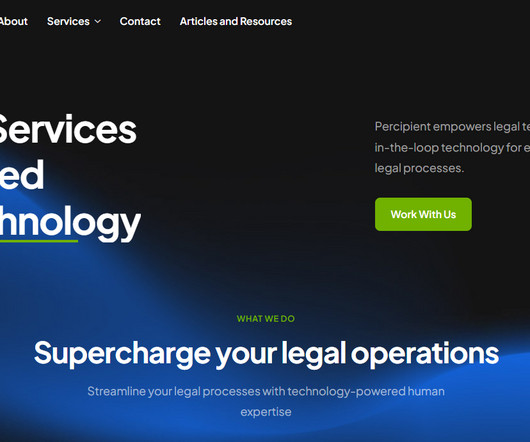How Government Agencies Legal Teams Can Achieve More with Technology
MatterSuite
JUNE 12, 2023
But here’s the question: How can technology empower these teams to make a genuine difference, far beyond simply keeping up with the times? And enabling government legal teams to navigate high-stakes challenges. Traditional paper-based systems can be time-consuming, inefficient, and prone to errors.













Let's personalize your content